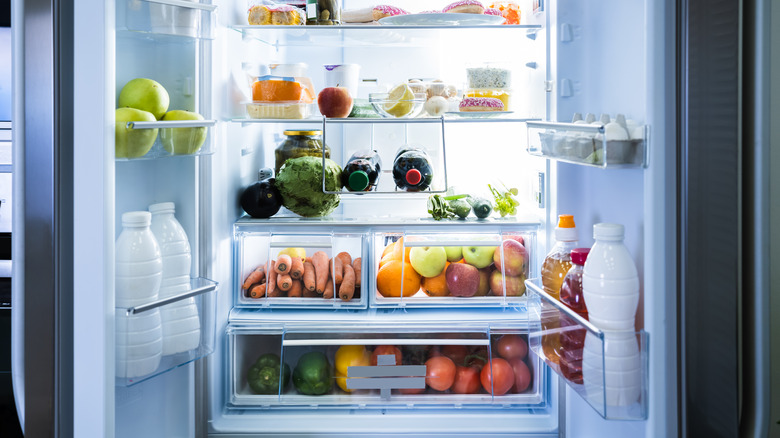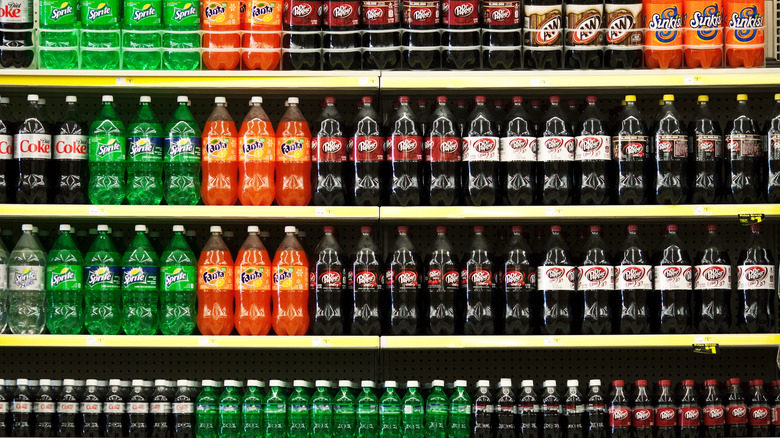The Reason You Should Store Soda In The Refrigerator Door
Refrigerators are something of a modern miracle. Their cold temperature prevents microorganisms from growing on food, meaning we can reach into our fridge and enjoy any number of perishable items, from meat to veggies, without the labor-intensive preservation methods, like canning or curing, that people used to employ (via University of California).
However, just because refrigerators are a great invention, that doesn't mean that absolutely zero thought goes into using them. While refrigerators work wonders when it comes to keeping food cold, there are some internal temperature fluctuations that go on inside the appliance, meaning we still have to be careful about where exactly in the fridge we store our food.
While the Food and Drug Administration says the inside of a fridge should be at or below 40 degrees Fahrenheit, that is not necessarily the case for every part of the fridge. In fact, there is one place that is prone to significant fluctuations in temperature: the shelves on the door. When the door opens, warm air hits the items on its shelves, so its temperature is not constant. Therefore, perishable foods which require consistent cold storage, like milk, eggs, and cheese, should not be kept on the door. Fruits and veggies should be kept inside the temperature-regulated crispers, never on the door, and raw meat should also be kept away from the door to avoid spoilage and spillage, per Eating Well.
However, there is one item that is perfectly fine to store inside the fridge door: soda.
Soda is a shelf-stable, non-perishable item
If you prefer your soda cold, it makes sense to store it in the refrigerator. But if you are running out of shelf space, then it is perfectly safe to store soda bottles inside the fridge door. Unlike milk and eggs, which are perishable, soda does not actually have to be stored in the fridge to be safe to consume, so it can easily withstand the temperature changes of the door.
"There is no harm in storing shelf-stable items like soda (soft drinks) or juice on the refrigerator door as they are considered non-perishable items," Lynn Williams, a customer support and communications program specialist at the USDA's Food Safety and Inspection Service, explained to Mashed. "In fact, most sodas (soft drinks) and juices do not require to be refrigerated for food safety purposes."
However, Williams did caution that "there are some juices that are considered perishable, so make sure to check the label for instructions." But so long as the beverage is not perishable, then it won't go bad even if it is occasionally exposed to warmer air. So if you like drinking cold soda, then refrigerate it by all means, but there is also no harm in storing your soda in a warmer place, and that includes the refrigerator door.

